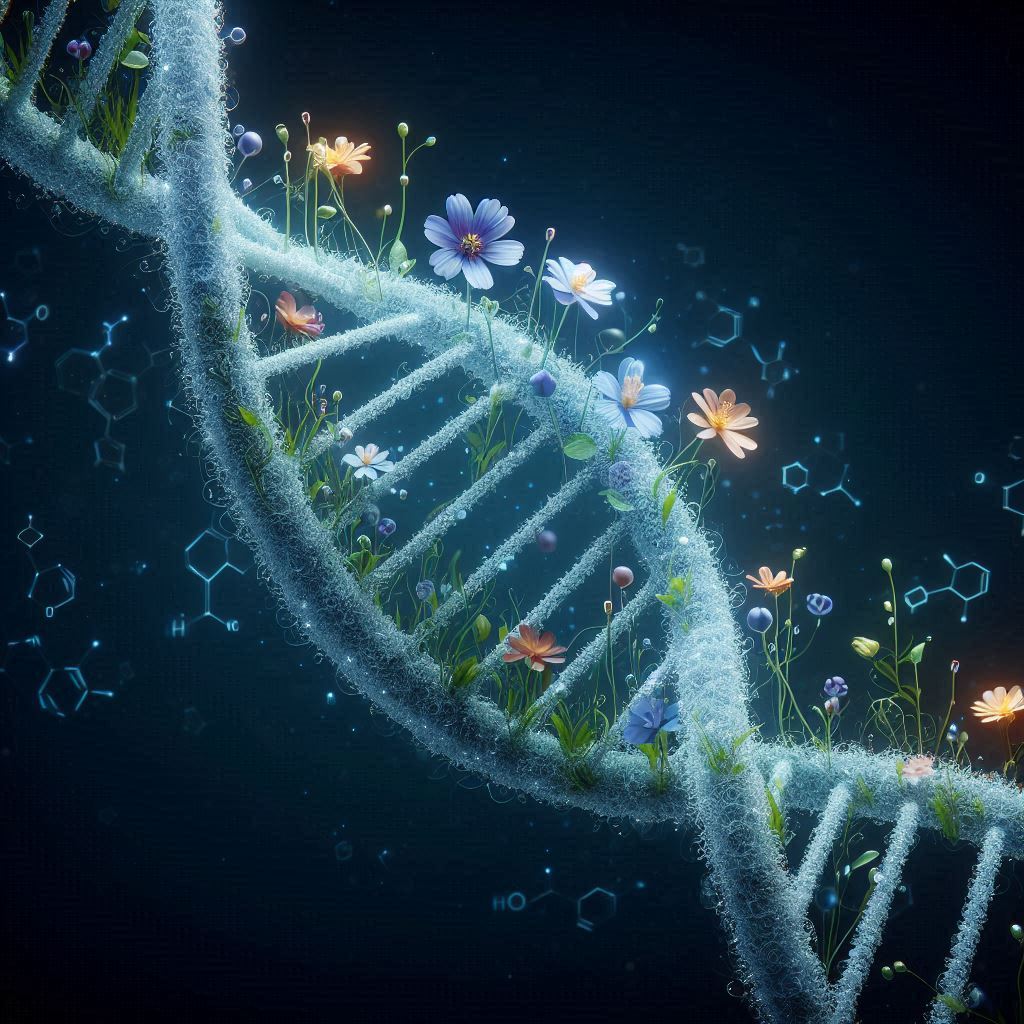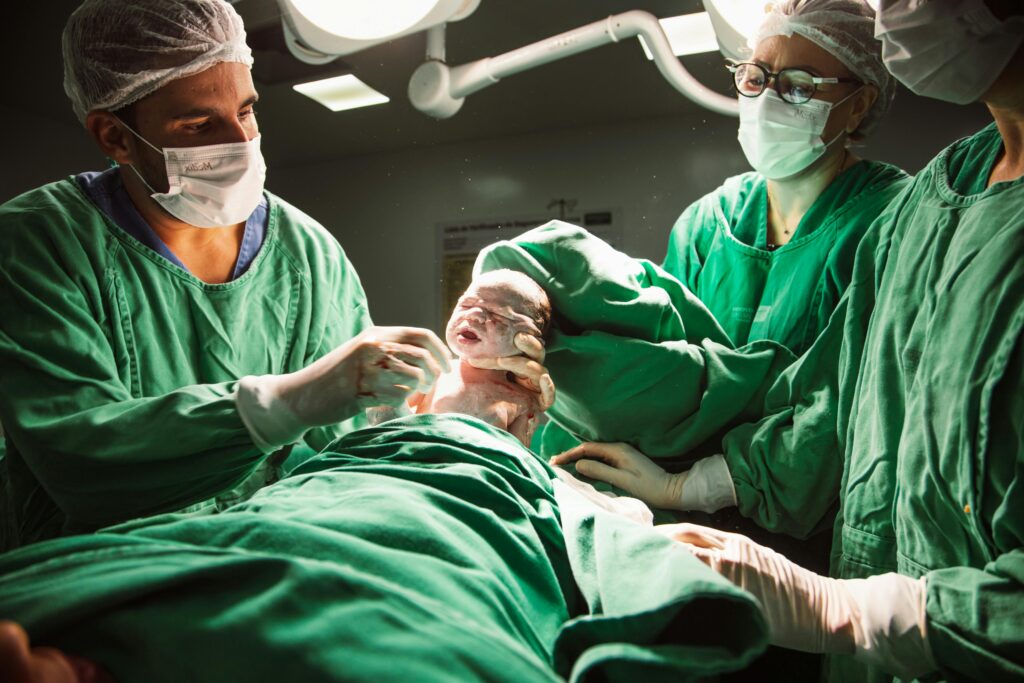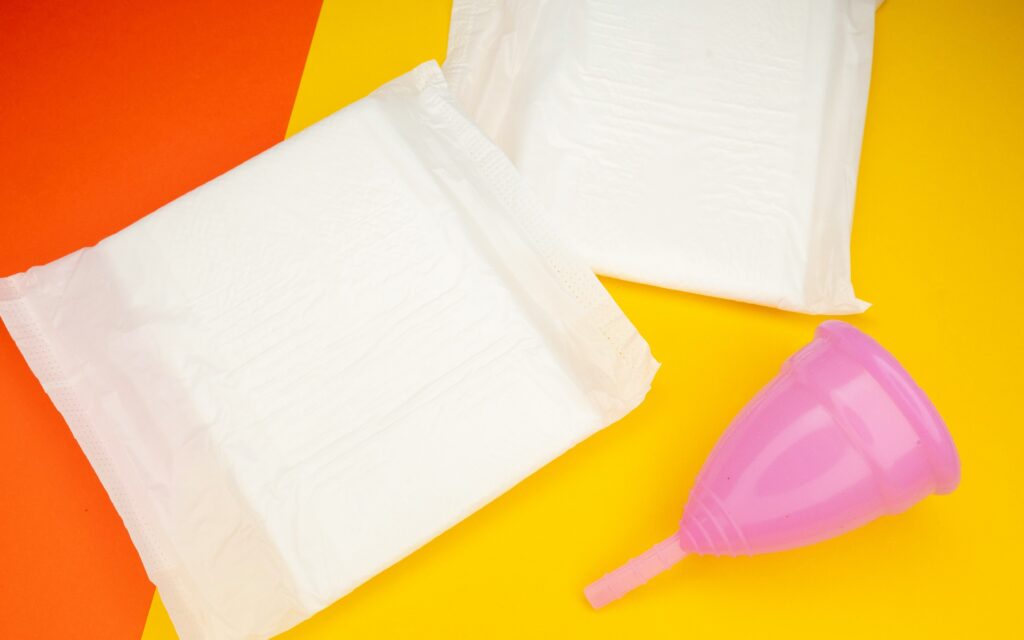Pregnancy is an exciting and life-changing time. As your body works hard to grow and nurture a new life, it needs extra nutrients, vitamins, and minerals. Eating the right foods can help ensure that both you and your baby stay healthy throughout your pregnancy. This article will guide you through the essential nutrients, foods to include in your diet, and tips to help you eat well during pregnancy.
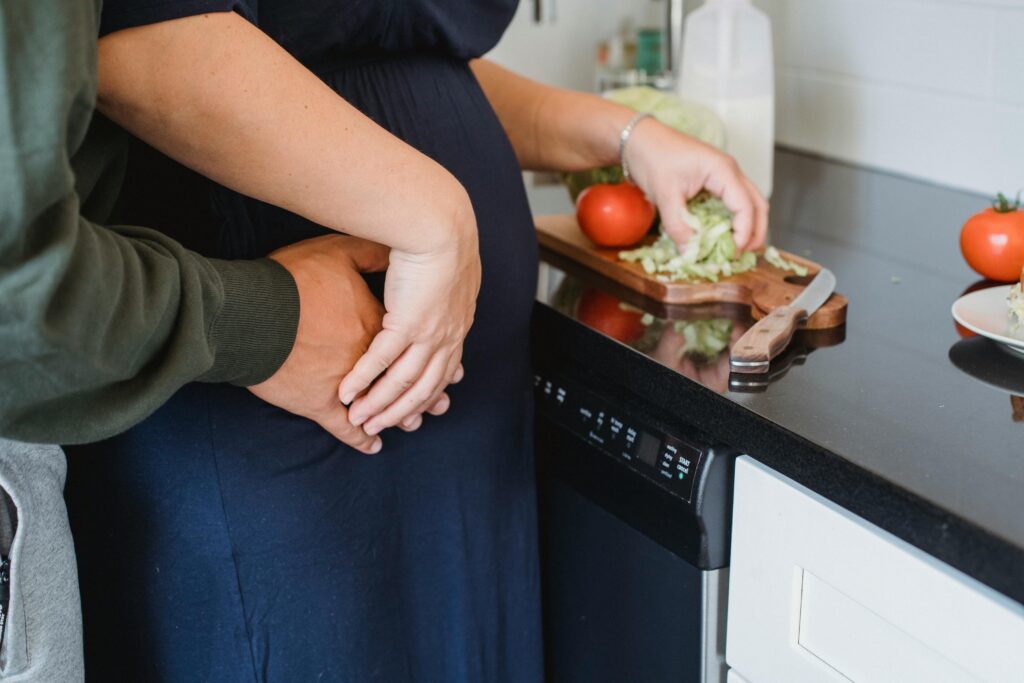
The Importance of a Balanced Diet
A balanced diet during pregnancy helps to support the baby’s growth and development. It also helps to maintain your health and energy levels. A well-rounded diet should include a variety of foods from all food groups:
– Fruits and Vegetables: These provide essential vitamins, minerals, and fiber. Aim to eat a rainbow of colors to ensure you get a range of nutrients.
– Whole Grains: Foods like brown rice, whole-wheat bread, and oatmeal are rich in fiber, B vitamins, and other nutrients.
– Protein: This is crucial for the baby’s growth. Include sources like lean meats, eggs, beans, and nuts.
– Dairy : Foods like milk, cheese, and yogurt provide calcium, which is important for the baby’s bones and teeth.
– Healthy Fats : These are needed for your baby’s brain development. Include sources like avocados, nuts, seeds, and olive oil.
Key Nutrients for Pregnancy
Some nutrients are particularly important during pregnancy. Here’s what you need and where to find them:
– Folic Acid (Folate) : Folic acid helps prevent neural tube defects, which affect the brain and spinal cord. It’s especially important in the first few weeks of pregnancy. Good sources include leafy green vegetables, oranges, beans, and fortified cereals. Many women take a folic acid supplement as well.
– Iron : Iron is necessary for making hemoglobin, the protein in red blood cells that carries oxygen to your tissues and your baby. During pregnancy, your body needs more iron because your blood volume increases. Good sources of iron include red meat, poultry, fish, beans, and iron-fortified cereals. Pairing iron-rich foods with vitamin C-rich foods like oranges or tomatoes can help improve absorption.
– Calcium : Your baby needs calcium to build strong bones and teeth. If you don’t get enough calcium, your body will take it from your bones, which can lead to health issues later on. Dairy products are the best sources, but you can also get calcium from leafy greens, tofu, and fortified foods.
– Vitamin D : This vitamin helps your body absorb calcium and is important for your baby’s bone development. Vitamin D can be found in fatty fish like salmon, fortified milk, and exposure to sunlight.
– Omega-3 Fatty Acids : These are important for your baby’s brain and eye development. Omega-3s are found in fatty fish like salmon, flaxseeds, chia seeds, and walnuts.
– Protein : Protein is crucial for the growth of your baby’s tissues, including the brain. Pregnant women should aim to get about 70-100 grams of protein a day. Good sources include lean meats, poultry, fish, eggs, beans, nuts, and dairy products.
– Choline : Choline is a critical nutrient for pregnant women and their developing babies. It plays a role in many physiological processes during pregnancy, including, Brain development, Preventing birth defects, Preventing fatty liver disease. The US Institute of Medicine recommends 450 mg of choline per day for pregnant women, while the US Food and Drug Administration recommends 550 mg per day. Good sources of choline are Soybeans and peanuts, Broccoli and Brussels sprouts, Quinoa and whole egg.
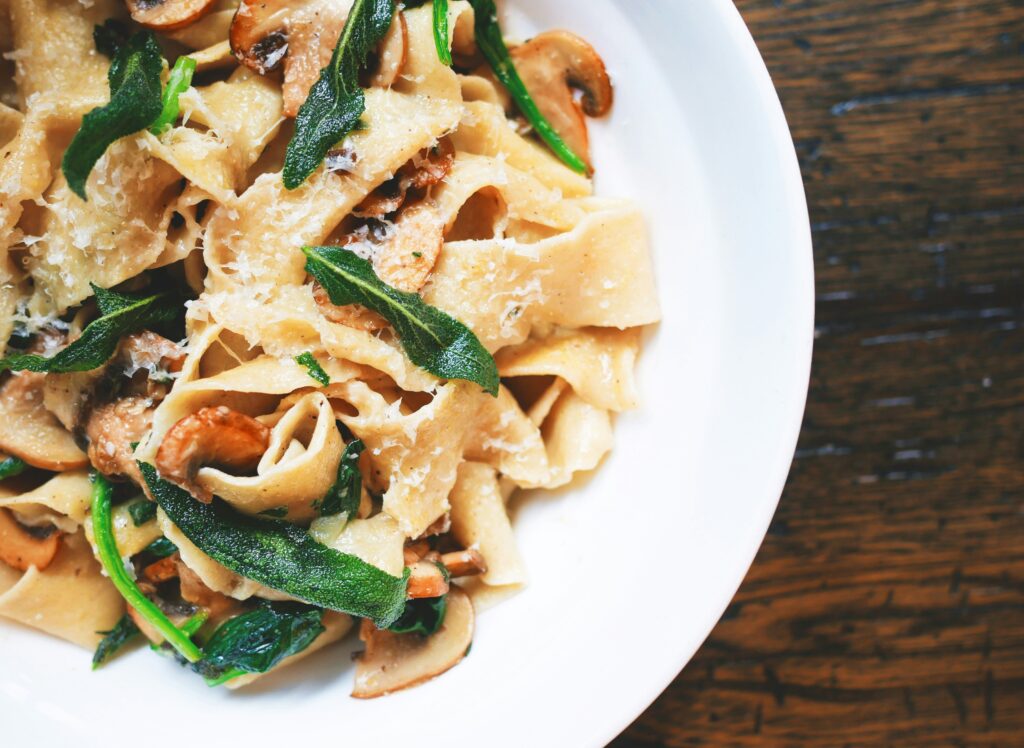
Foods to Avoid
During pregnancy, some foods can pose a risk to your baby. Here’s what to avoid:
– Raw or Undercooked Meat and Eggs : These can contain harmful bacteria like Salmonella, which can cause food poisoning. Make sure all meats and eggs are thoroughly cooked.
– Certain Fish : Some fish, like shark, swordfish, and king mackerel, contain high levels of mercury, which can harm your baby’s developing nervous system. Stick to low-mercury fish like salmon, shrimp, and canned light tuna.
– Unpasteurized Dairy Products : These can contain Listeria, a type of bacteria that can cause miscarriage or stillbirth. Always choose pasteurized milk, cheese, and yogurt.
– Caffeine : High levels of caffeine can increase the risk of miscarriage. It’s best to limit your caffeine intake to about 200 milligrams a day, which is roughly one 12-ounce cup of coffee.
– Alcohol : There is no safe level of alcohol during pregnancy. Drinking alcohol can lead to fetal alcohol syndrome, which causes a range of physical and developmental problems in babies. It’s best to avoid alcohol entirely during pregnancy.
Managing Common Pregnancy Symptoms with Food
Many women experience symptoms like nausea, constipation, and heartburn during pregnancy. Here are some dietary tips to help manage these:
– Nausea (Morning Sickness) : Eating small, frequent meals can help keep nausea at bay. Dry foods like crackers or toast can be easier to tolerate. Ginger tea or ginger candies can also help soothe your stomach.
– Constipation : Pregnancy hormones can slow down your digestive system, leading to constipation. Eating high-fiber foods like fruits, vegetables, whole grains, and drinking plenty of water can help keep things moving.
– Heartburn : As your baby grows, it can press against your stomach, causing heartburn. Eating smaller, more frequent meals and avoiding spicy or acidic foods can help. Sitting up after eating can also prevent stomach acid from rising.
Hydration is Key
Staying hydrated is crucial during pregnancy. Water helps to form the amniotic fluid around your baby, aids digestion, and helps nutrients circulate in your body. Aim to drink about 8-10 glasses of water a day. If you’re exercising or it’s hot outside, you may need more. In addition to water, you can also get fluids from fruits, vegetables, and soups.
Supplements: Do You Need Them?
While it’s best to get your nutrients from food, some women may need supplements to meet their needs during pregnancy. Your doctor may recommend:
– Prenatal Vitamins : These are designed to fill in any nutritional gaps in your diet. They usually contain folic acid, iron, and other essential vitamins and minerals.
– Iron Supplements : If your iron levels are low, your doctor might suggest an iron supplement.
– Vitamin D Supplements : If you’re not getting enough sunlight or vitamin D-rich foods, a supplement might be necessary.
Always talk to your doctor before starting any new supplements during pregnancy.
Eating for Two: How Much Should You Really Eat?
While it’s true that you’re eating for two, that doesn’t mean you should double your food intake. In the first trimester, most women don’t need any extra calories. In the second trimester, you need about 340 extra calories a day, and in the third trimester, about 450 extra calories a day.
It’s more important to focus on the quality of your food rather than the quantity. Choose nutrient-dense foods that provide the vitamins and minerals you and your baby need.
Healthy Snack Ideas
Pregnancy can make you feel hungry more often, so it’s good to have healthy snacks on hand. Here are some ideas:
– Fresh Fruit : Apples, bananas, and berries are easy and nutritious.
– Yogurt with Nuts and Seeds : This provides a good mix of protein, calcium, and healthy fats.
– Whole-Grain Crackers with Cheese : This snack offers fiber and calcium.
– Vegetable Sticks with Hummus : Carrots, cucumbers, and bell peppers are crunchy and full of vitamins.
– Hard-Boiled Eggs : These are a quick source of protein.
Planning Your Meals
Planning your meals ahead of time can help ensure you’re getting a balanced diet. Here’s a simple guide:
– Breakfast : Start your day with a mix of protein and fiber, like whole-grain toast with avocado and eggs, or a smoothie with fruit, yogurt, and spinach.
– Lunch : Include protein, whole grains, and vegetables. A salad with grilled chicken, quinoa, and a variety of veggies is a great option.
– Dinner : Focus on lean protein, vegetables, and healthy fats. Try baked salmon with sweet potatoes and steamed broccoli.
– Snacks : Keep snacks healthy and balanced. Fresh fruit, yogurt, and nuts are great choices.
Listening to Your Body
During pregnancy, your body will let you know what it needs. If you’re hungry, eat. If you’re full, stop. Pay attention to your cravings—they might be your body’s way of telling you it needs certain nutrients. However, if you’re craving non-food items like dirt or clay, talk to your doctor, as this could be a sign of a condition called pica, which is linked to nutritional deficiencies.
Conclusion
Eating well during pregnancy is one of the best things you can do for yourself and your baby. By focusing on a balanced diet, getting the right nutrients, and avoiding harmful foods, you’ll be on the right path to a healthy pregnancy. Remember to stay hydrated, listen to your body, and consult your doctor with any concerns. A little planning and mindfulness can go a long way in ensuring that you and your baby are well-nourished throughout this incredible journey.
Thanks for reading!
May mother earth bless every being with the sense of fertility, with a healthy body and with higher consciousness. Respect & Gratitude!
Join our Pinaki Yoga Classes & Workshops on Labor and Childbirth. To Register, Message or Call us at +91-8285579134
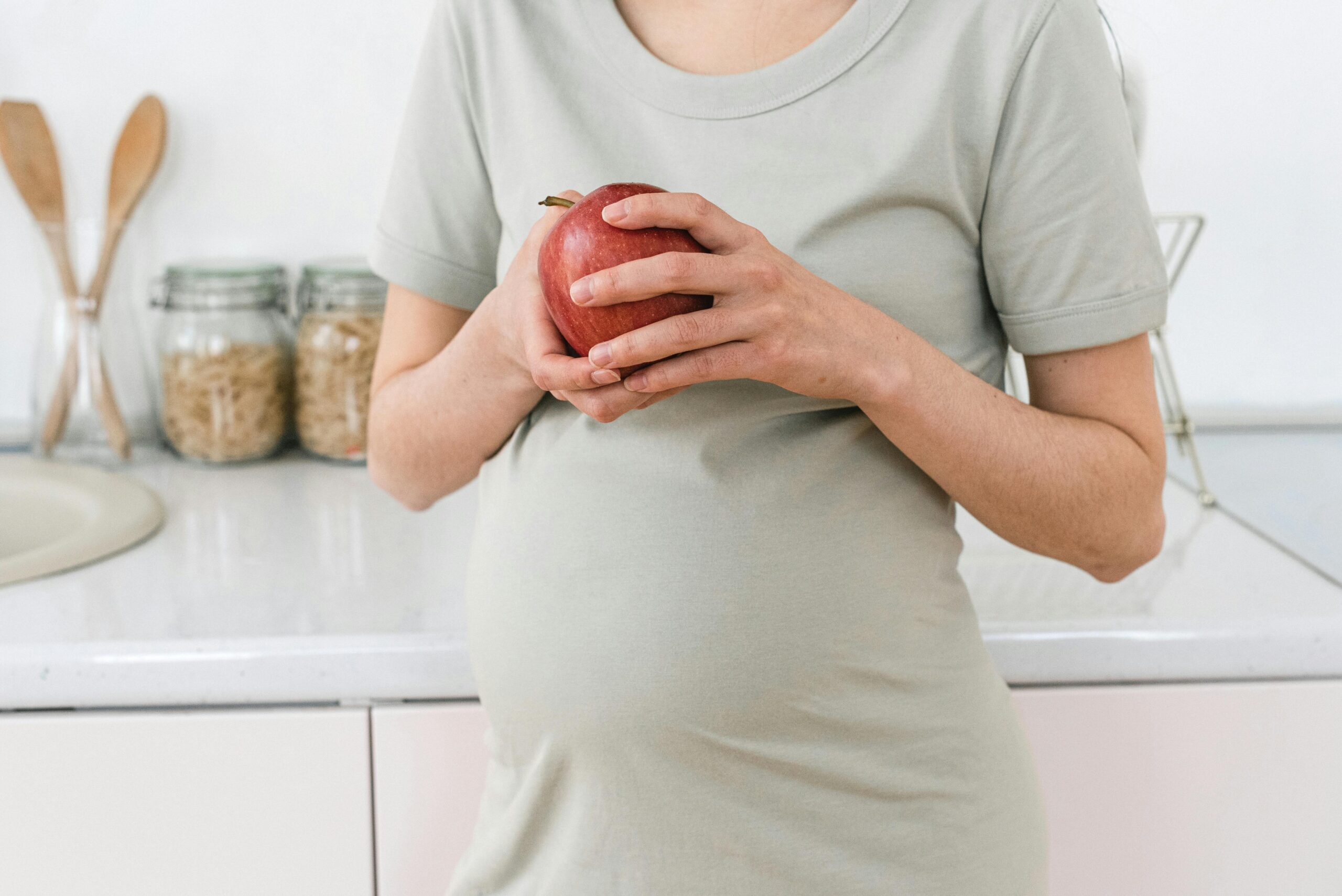
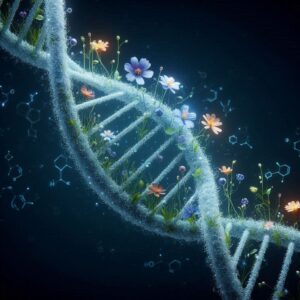
Chromosomal Anomalies: Reason behind Birth Defects, Miscarriages & Newborn Brain Disorders
Chromosomal anomalies are genetic conditions resulting from changes in the number or structure of chromosomes in a person’s cells. These anomalies can lead to a

Why 39 Weeks Are Important for Your Baby in the Womb
When you’re expecting a baby, there’s a lot to think about, from choosing a name to setting up the nursery. But one of the most
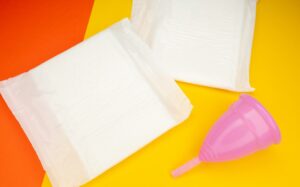
Early Menstruation in Teenage Girls: Unraveling the Consequences of Modern Life & Environmental Factors
Early menstruation, or menarche, is a critical developmental milestone for adolescent girls, traditionally occurring between the ages of 11 and 14. However, recent data indicates

Fertilization Errors: Understanding the Challenges & Preconception Care Tips
Fertilization is the first step in the journey to creating new life, but it’s a process fraught with potential challenges. Various fertilization errors can lead

Pregnancy Nutrition: What to eat for a healthy baby & you
Pregnancy is an exciting and life-changing time. As your body works hard to grow and nurture a new life, it needs extra nutrients, vitamins, and

Fertility Goddesses & Their Role in Pregnancy and Preconception
The Mother aspect of the Goddess embodies bounty, fertility, and nurturing, symbolizing the essence of life-giving energy. Associated with the earth, the full moon, and


